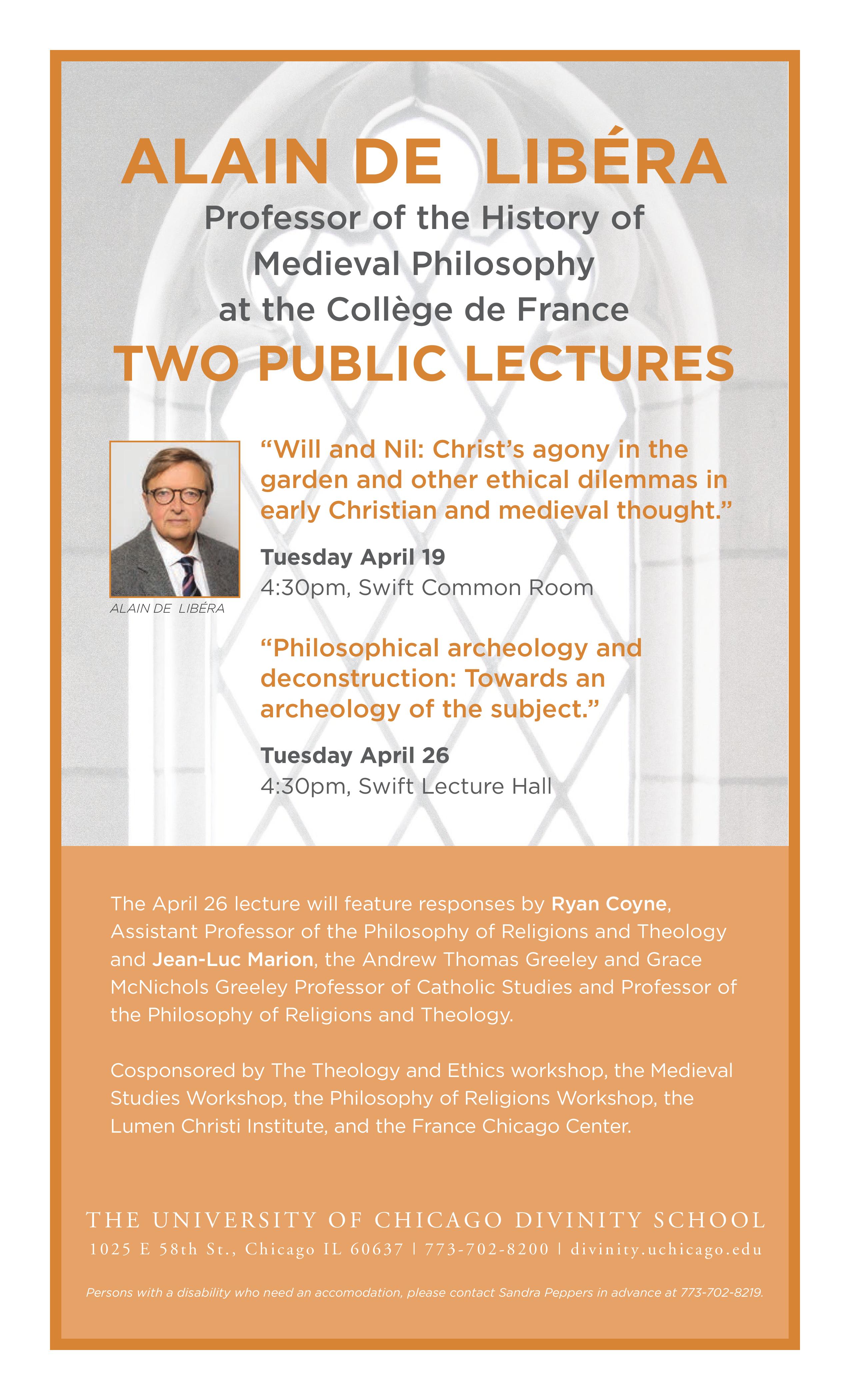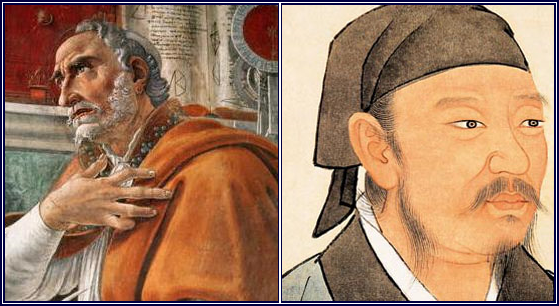
Tag Archives: Christianity
Zeke Goggin: “The Idea of Sacrifice in Hegel’s 1793 ‘Volksreligion’ Fragment”
Wednesday February 17th, 4:30pm Swift Hall 106

ABSTRACT:
This paper will focus specifically on some fragments which Hegel began while studying at the Stift in Tübingen and likely completed during a visit home to Stuttgart. The question of sacrifice arises at the height of a characteristically dialectical difficulty which the young Hegel has not yet developed a logic to conceptualize. The treatment of sacrifice here indicates certain persistent themes in Hegel’s thought which are sometimes taken to be wholly attributable to the interventions of Hölderlin and Schelling, but which in the context of the Volksreligion Fragment appear some three years prior to the the former, and almost a decade prior to the latter.
The Workshop on the Philosophy of Religions is committed to maintaining itself as a fully accessible and inclusive workshop. Please contact Workshop Coordinator Anil Mundra (amundra@uchicago.edu) in order to make any arrangements necessary to facilitate your participation in workshop events.
Eun Young Hwang (PhD Student, Religious Ethics): “A Constructive Comparative Religious Ethical Analysis of Augustine and Xunzi: The Sacred Origin of Human Rights and Its Demand for Just Society”
Wednesday, February 3, 4:30, Swift 106 (co-sponsored with Global Christianities Workshop)

ABSTRACT:
While referring to some contemporary theoretical concern for human rights grounded on the person’s potential for sacred experience (Joas) and their implication to the institutional demand not to violate the entitled access to flourishing according to some universal criteria of minimal justice (Pogge), this project engages with a comparative reading of two historically unrelated traditions, Augustine and Xunzi. I will show how Augustine and Xunzi show differences and similarities when dealing with the sacred capability of human person as the source of entitlement for human flourishing and the institutional demand of securing basic rights for human flourishing according to their culture-specific visions of personal fulfillment and social order, which all resonate with the universal concern for human rights and universal criteria of thin justice.
The Workshop on the Philosophy of Religions is committed to maintaining itself as a fully accessible and inclusive workshop. Please contact Workshop Coordinator Anil Mundra (amundra@uchicago.edu) in order to make any arrangements necessary to facilitate your participation in workshop events.
Wednesday, November 5 Philosophy of Religions and Global Christianities Joint Workshop and Pub Night!
Hannah Roh (Divinity PhD Student in the Philosophy of Religions):
“Interrogating Cross-Cultural Inquiry in Philosophy of Religions: A Case Study of Self and Agency in Modern Korean Christianity”
Swift 208 – 4:30pm, adjourning afterwards to The Pub at Ida Noyes
Abstract:
Cross-cultural inquiries of the self in philosophy of religions can proceed to frame the philosophical distinction between ‘self’ and ‘no-self’ as a cultural distinction—between some Western religious traditions and some Eastern religious traditions. One of the more obvious examples that can apply this cultural analysis is the comparative study of the Christian self as part of the Western tradition and the Buddhist non-self as an Eastern practice. What kinds of philosophical and political problems emerge, however, when one religious tradition is historically saturated with cultural dissonance and multiplicity—that is, when the cultural encounter or dissonance between ‘East’ and ‘West’ occurs not between religious traditions, but within (and sometimes, because of) one religious tradition? When the Orthodox Church emerges as a distinct Christian tradition in the East? Or when contemporary Buddhist practices take root in North America or Europe, or when Christianity spreads (through missionary or colonial activity or for other complex reasons) over the East? Defending the significance of culturally and politically embodied historical moments, this paper considers the philosophical complexities of culturally heterogeneous religious traditions by undertaking a specific case study of selfhood and agency in twentieth century Korean Christianity. The first part of the paper will sketch the historical elements opened up by theories of the Christian self in the West by considering contemporary works in philosophy of religion that examine modernity and subjectivity. The second part of the paper will then reflect on the implications of displacing and re-constituting those questions of the Christian self in another cultural context. Finally, I hope to open up further methodological questions concerning the political implications of cross-cultural inquiry in philosophy of religions.
For more information or accessibility assistance, please visit http://cas.uchicago.edu/workshops/philofreligions/
